An urgent search by the investigating authorities is carried out most often. The essence of such a search is to timely identify documents or objects related to the commission of a crime. Any search can be carried out only by law enforcement agencies. Naturally, during search activities there are many different nuances that are worth paying attention to, especially if all actions take place urgently. Exactly how should investigate officers act, we will consider in more detail. And also special attention should be paid to exactly how the search takes place, which is urgent.
What is an urgent search?
A search is an action that helps the investigation find evidence of a crime, which contributes to a pre-trial investigation, respectively, with the Criminal Code. An urgent search of a home is most often forced. Therefore, law enforcement authorities do not necessarily have the consent of the owner of the house. The owner of the home does not have the right to interfere with the work of the investigating authorities.
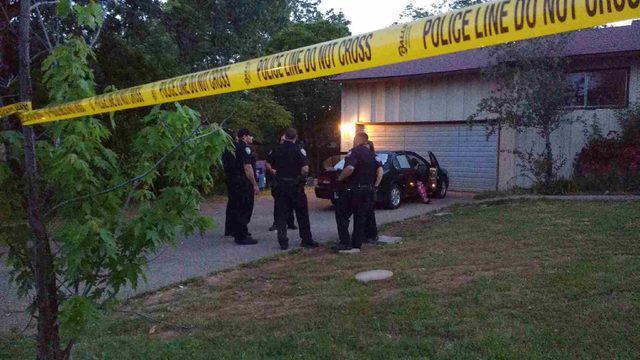
When the homeowner prevents entry into the home, law enforcement agencies have every right to break the lock, enter the premises through a window, and use force.
The main tasks of the search
The search must be justified, therefore, law enforcement officers can act only for the purpose to achieve the solution of such tasks as:
- The search is carried out only in order to find the tool with which the crime was committed, documents or money can still be confiscated.
- A search is conducted to find missing persons.
- Often the purpose of a search is to seize items that are prohibited for use.
Investigative bodies can not only seize objects, but also record places of shelter.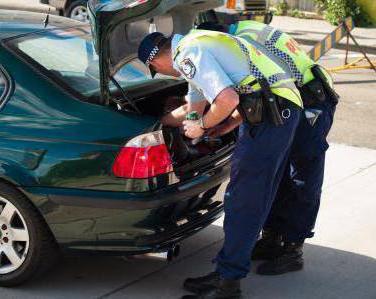
What can be seized during the search activities?
An emergency search allows you to remove or get an idea of the whereabouts of such objects:
- Values. Traces of the crime may remain on such items. These may be items that have been obtained through theft.
- Dangerous substances, weapons, drugs, which should not be with the searched person, and he does not have any documents for their storage.
- Documentsserving as evidence of guilt of a searched person.
- Peoplethat were stolen, or hidden corpses.
What are the grounds for a search?
An urgent search will not be carried out just like that, so it will be carried out when there are serious reasons for this. Most often, such events are carried out when it becomes necessary to collect all the necessary evidence and prove the guilt of the offender in court. The basis for the search activities may be testimony, for example, when a person indicated the place of the item, and the basis may be a logically structured chain of investigators, in which there is an assumption about where the evidence may be. It should be noted that there may be other individual reasons for holding such events.
Who gives permission to search?
It should be remembered that in any case, according to the Code of Criminal Procedure, an urgent search is carried out only after the permission of the court, namely the investigating judge. There are, of course, exceptions, but in reality there are very few of them. Urgent cases include searches that are associated with a threat to a person’s life, when the persecuted person is hiding and his guilt has been proved earlier.
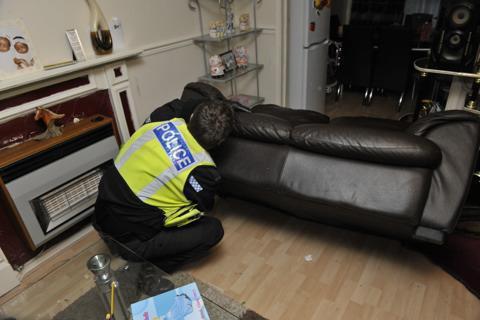
There are cases when the investigator appeals to the court for a search, but after he has passed. A judge can consider all the actions of law enforcement agencies, and if he considers that they do not have the right to be considered urgent, then all evidence obtained in such circumstances is not valid.
Who is searched?
Urgent investigative actions and searches can only be carried out by investigators, but operational officers can also be present. In no case should a search be carried out without witnesses, therefore citizens must also be present who agreed to act as witnesses. Witnesses should not be interested persons; therefore, relatives of the suspect or victim are in no way suitable for this role.
Even if the owner of the premises is not there and he is far away, this does not interfere with the search, for which there are good reasons. In the room, there may not be anyone at all from the close people of the suspect. After the search has been carried out, it is enough to leave only a copy of the protocol of the search in the most visible place. The investigator and the prosecutor are responsible for the safety of the property and seal the premises, in order to prevent outsiders from taking advantage of the situation.
Where is the search conducted?
According to the Criminal Procedure Code, an urgent search can be carried out in the place where the suspect lives, or in any property that he owns under the law, including under a lease. Such places may mean apartments, villas, garages and any other utility rooms. The possession of the suspect may include: land, yard, transport, office. An urgent search may be carried out in any of these places if there are substantial grounds for this.
What time of day is the search being conducted?
Any search of the premises should be carried out at a time that is most acceptable to the person living in it, but this rule does not apply to urgent searches. According to generally accepted standards, a search cannot take place at night, for example, from ten in the evening until six in the morning.
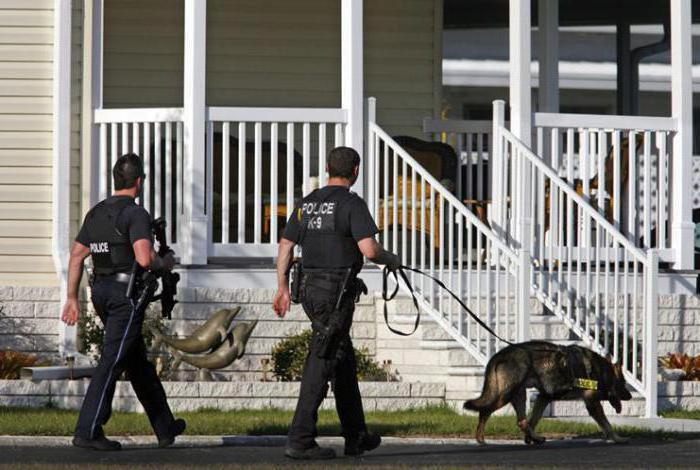
But the kind of search in question is urgent, because sometimes delays in investigative measures can lead to the fact that the offender has time to destroy the traces of the crime, and the perpetrator can escape from the investigation. In practice, under such conditions a search can be carried out at any time of the day.
How is a search conducted? What should an investigator do?
The search procedure itself is presented as follows: the investigator sends a search request to the court. Since this is an urgent search, investigative measures begin without waiting for the application to be considered.
- Law enforcement officers come to the premises of the suspect, and begin to conduct a search.
- Before starting a search, the investigating authorities must clarify all rights.
- Initially, law enforcement officers must offer to give out at will of their own all things and documents related to the crime. If investigators are refused, then search activities begin, things, cabinets and various storage places are inspected.
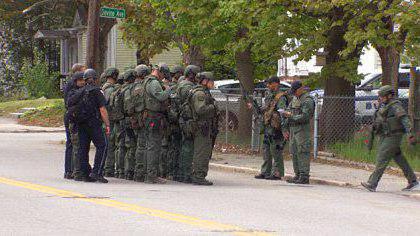
Law enforcement officers have every right to carry out such actions:
- Prohibit anyone on the spot from leaving the premises until the emergency search of the home is over.
- Investigators may open premises and vaults without permission.
- Law enforcement officers conduct a personal search if there is reason to believe that the person is hiding the objects or documents sought.
- During the search, measurements can be taken, videos and photographs taken.
- If the items that were searched are found, then law enforcement officers can retrieve them for the purpose of further investigation.
As soon as the urgent search ends, the protocol is immediately drawn up in duplicate.One of the protocols remains with the suspect, there is a detailed description of what was seized during the search work.
How exactly is the preparation for the search conducted?
Before proceeding with a search, the investigator must take the following actions:
- First of all, the investigator must collect all the information about the objects that are wanted. Information on the person who could have committed the crime is carefully studied.
- If an urgent search is carried out, the time is not additionally set, that is, search activities can be carried out at any time that will be convenient for the investigator.
- The investigator should prepare search tools that will help fix the search results.
- A search cannot be conducted unless all participants are identified. First of all, the searched person may be present, and if the suspect is absent, then someone from the local government may be present. The searched person may invite his lawyer. A search cannot be carried out without an interrogating officer (as a rule, this is an operative from the internal affairs bodies), a forensic specialist, a dog handler with a dog, and a victim who can recognize the desired item. In addition, witnesses are invited, at least two.
- The investigator must fully comply with the laws described in the CPC. An urgent search of the home, in accordance with all standards, should be carried out with an explanation of all the duties and rights of the participants. No one has the right to interfere with the investigation, and if someone knows something about the whereabouts of the item that is being sought, then he must inform the investigation.
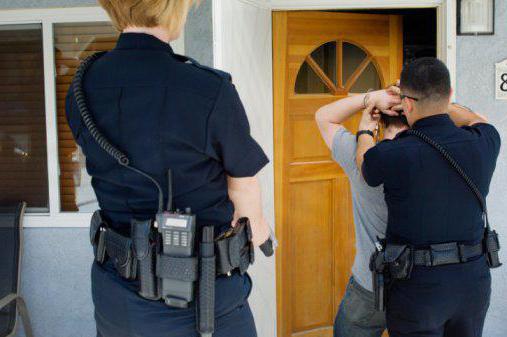
- The investigator can help prepare special vehicles so that all participants can easily get to the place of the search.
Naturally, given that search work is carried out very quickly, the investigator is obliged to conduct all activities in accordance with all the rules prescribed by law.
Features of search activities
According to the Code of Criminal Procedure of the Russian Federation, an urgent search in a home should be carried out much more thoroughly than a regular search. It should be treated with great scrupulousness to the standards described in the law.
During a search, every corner of the room is examined, with the aim of finding the desired items. The investigator has every right to examine the attic, basement, utility rooms and various outbuildings. Places where various tools, fuels and lubricants, and other adjoining rooms can be examined.
Law enforcement authorities are well aware that all caches in the room can be hidden, for example, they can be in the walls, under the floors, in the attic, in furniture and other household items. In addition, the investigator may request access to a suspect’s car, motorcycle, or bicycle.
During the search, not only items directly related to the crime are seized. For example, electronic media that may have something to do with a criminal offense or may be put on the trail of a wanted item may also be seized. In the presence of witnesses, all information can be copied from electronic media, but this is possible only if the information is not lost or changed during copying.
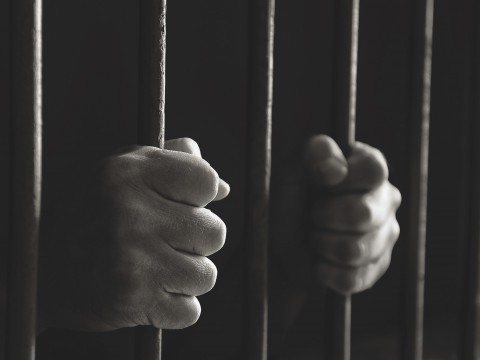
All seized items are recorded in the protocol with witnesses and witnesses. The fact that these items were seized, the owner himself must be notified. It often happens that an urgent search helps to solve the crime in hot pursuit, preventing the real criminal from hiding the evidence of his crime and remaining unpunished, walking just free and continuing to threaten the safety of other people.